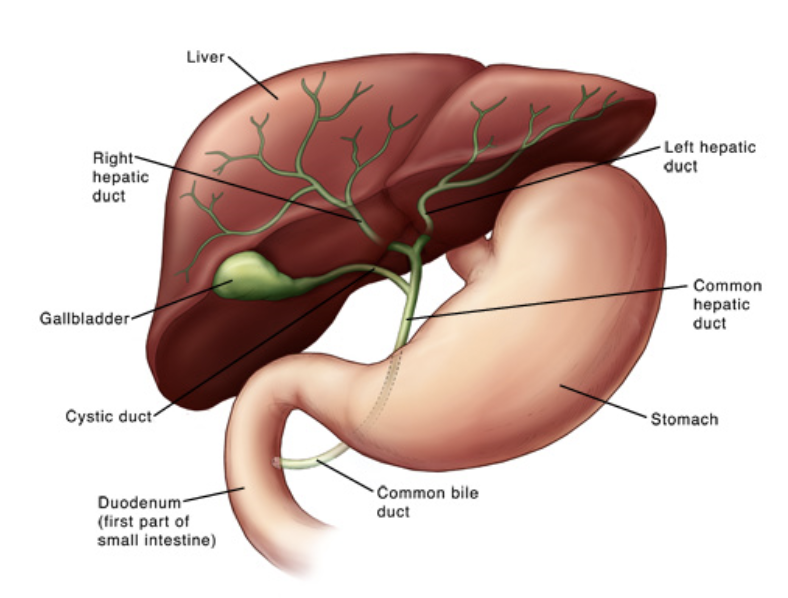Your Digestive System Post Gallbladder Removal
How Digestion Works With a Gallbladder (prior to surgery)
Think of your liver as the big factory that produces bile, a special juice that helps your body break down fats. Then, think of your gallbladder as a storage tank that saves up the bile and releases a big dose only when needed. So when you eat, the gallbladder would get the signal from the body that it needs to squeeze out bile into your small intestine to digest fats.
Example: Imagine bile is soap and your meal is a greasy pan. Your gallbladder holds onto the soap and squirts it when you need it most!
How Digestion Changes After Gallbladder Removal
Losing your gallbladder does not mean losing good digestion BUT your body will need some extra support for smooth, symptom free days. Your digestive system adapts in some key ways and understanding how your digestice system adapts makes all the difference post surgery.
Once your gallbladder is gone, bile no longer gets stored up and it does not get squirt out when there is a high fat meal. It just drips steadily from your liver into your small intestine all the time. Without that big splash of bile during meals, it’s harder for your body to digest high-fat foods in one go. Not only that, but with the bile continuously dripping, it can build up in your small intestine and cause irritation and damage to your gut lining. This is why sometimes if you don't eat, you might get diarrhea, bloating, and gut symptoms. Going too long without eating makes this bile drip more damaging to your body. Too long for someone without a gallbladder is about 4-5 hours without food for most people.
Habits to Support Your Digestive System Post Surgery:
In most people post surgery, it is necessary for health and gut lining support to eat small, frequent meals throughout the day. Aim for 4–6 smaller meals and snacks every 3-4 hours instead of big feasts. This will help use up the bile that is being dripped continuously into the small intestine and helps prevent digestive upsets.
Avoid skipping meals: Giving bile something to mix with (i.e., food) is KEY. Skipping meals means more bile builds up, which can irritate your gut and send you to the bathroom unexpectedly or cause stomach issues: sharp pain, bloating, discomfort, gas, etc.
Go easier on the fat: Try to limit ultra processed high-fat foods all at once. Too much fat means not enough bile at once to break it down, which can cause loose stools or cramps. Opt for lean proteins and gentle cooking oils (like olive or avocado oil).
Note: I am not a fan of low fat dairy products as they typically put in several other additives and sugars. Just be mindful of what you are pairing your food with!
Add fiber: Fiber can help keep stools regular, but introduce it little by little to avoid extra bloating or discomfort. This is also great for keeping what you ate in your digestive system longer since fiber is a complex molecule that does not break down and absorb right away. Hence, giving your body something to do for the next hours!
Stay hydrated: Water supports healthy digestion and keeps things moving in your gut.
Listen to your body: Some people notice more gas, bloating, or stomach cramps, especially after fatty foods. Adjust your eating style as needed, and consider a food diary to track what feels best for you and what did not.
Client Story: I had a client who actually had issues with fecal incontinence and could no longer go out in public for fear of pooping her pants (literally!). She was not eating breakfast and eating most of her calories in the second half of the day to try to reduce episodes. By simply adding in more fiber and getting her into a routine of eating every 3-4 hours she was able to have a normal life again and start going out in public! She even made sure to carry snacks with her (in her purse/car) to ensure that she was never stuck in a situation without food for 5-6 hours. Knowing how her new digestive tract worked was literally life changing for her and she is now able to travel and go out with friends.
